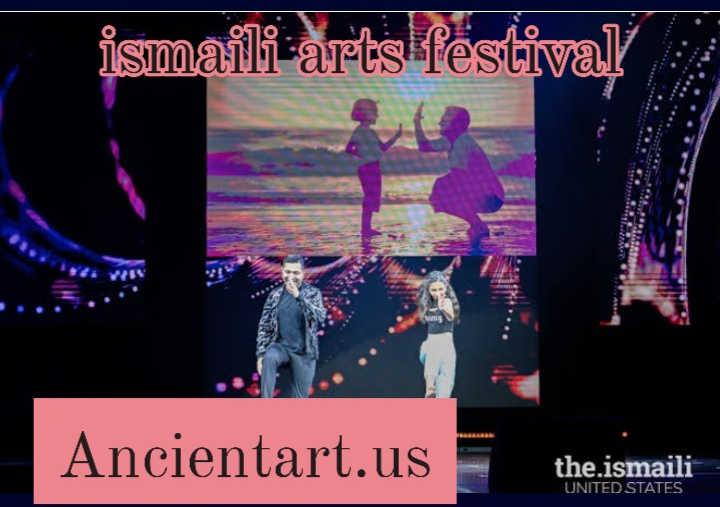Introduction
The Ismaili Arts Festival is an extraordinary event that celebrates the richness of Ismaili Muslim culture through art, music, dance, and other forms of expression. The festival is not only a platform for showcasing the artistic achievements of Ismaili communities but also a celebration of their values, traditions, and contributions to society. The event brings together artists from around the world, uniting them in a shared commitment to preserving and advancing the artistic heritage of the Ismaili Muslim community. With its vibrant atmosphere and diverse range of activities, the Ismaili Arts Festival has become a cornerstone event for those who wish to explore the intersection of faith, culture, and creativity.
In this article, we will explore the significance of the Ismaili Arts Festival, its history, the key elements that make it unique, and the ways in which it strengthens cultural ties within the Ismaili community and beyond. Whether you are familiar with the Ismaili community or new to this rich culture, this article will provide you with a comprehensive understanding of the festival and its importance.
The Origins of the Ismaili Arts Festival
The Ismaili Arts Festival, in its modern form, was first introduced to the public by the Aga Khan Trust for Culture (AKTC), an organization established by the Aga Khan, the spiritual leader of the Ismaili community. The festival was created to showcase the diverse cultural expressions of the Ismaili people, who have a long and rich history of artistic production in various forms, including architecture, calligraphy, music, and storytelling.
The Aga Khan, a prominent advocate for cultural preservation and intercultural dialogue, established the festival as a means of preserving and advancing the artistic heritage of the Ismaili community. The festival aims to present the Ismaili culture in a contemporary light, bridging the gap between tradition and modernity, and promoting dialogue and understanding across different cultural groups.
The Role of the Aga Khan Trust for Culture (AKTC)
The Aga Khan Trust for Culture plays a pivotal role in the Ismaili Arts Festival. Founded in 1988, the Trust works to preserve and promote the cultural heritage of the Ismaili Muslim community. Through initiatives like the Ismaili Arts Festival, AKTC has provided a global platform for artists to share their work with a wide audience.
The Trust also focuses on fostering creativity and supporting emerging artists by providing them with the tools and resources they need to thrive. The Ismaili Arts Festival serves as a celebration of this commitment, offering a space for artists to showcase their talents and connect with others who share similar passions.
Key Elements of the Ismaili Arts Festival
The Ismaili Arts Festival is known for its dynamic blend of various artistic disciplines. From traditional to contemporary art forms, the festival captures the full spectrum of creative expression within the Ismaili community. Some of the key elements of the festival include:
Visual Arts
The visual arts component of the festival is perhaps one of the most striking and diverse. Ismaili artists from across the globe come together to exhibit their works, which range from traditional forms of art like miniature painting and calligraphy to more modern forms such as abstract art, photography, and digital installations. The festival showcases not only the aesthetic beauty of these artworks but also the profound cultural and spiritual narratives embedded within them.
Ismaili art has historically been influenced by a blend of Islamic artistic traditions, regional influences, and the unique philosophies of the Ismaili community. The works often reflect themes of spirituality, humanism, and the connection between the individual and the divine.
Performing Arts: Music, Dance, and Theatre
Music and dance have always been integral to the Ismaili community’s cultural expressions. The performing arts section of the festival features musical performances ranging from classical and traditional instruments to contemporary fusion genres. Artists showcase the musical traditions of Ismaili cultures across the world, including those from South Asia, the Middle East, Central Asia, and East Africa.
The performing arts also encompass traditional and modern dance forms. Whether it’s a graceful performance of classical dance or an energetic contemporary piece, these performances offer a deeper understanding of Ismaili cultural identity.
Theatre also plays an important role in the Ismaili Arts Festival, with performances that touch on themes of spirituality, community, and social justice. These performances often incorporate a blend of storytelling, visual effects, and music, offering a holistic cultural experience.
Film and Media
The Ismaili Arts Festival frequently includes a film component, where filmmakers from within the Ismaili community present their work to an international audience. These films often explore themes of identity, faith, migration, and the challenges faced by Ismaili communities across the world.
The film screenings are often followed by discussions or panels that encourage deeper engagement with the content. These conversations explore how the themes in the films relate to broader cultural and social issues, fostering an environment of learning and exchange.
Workshops and Interactive Exhibits
In addition to formal performances and exhibitions, the Ismaili Arts Festival also provides opportunities for visitors to engage directly with the artists and their work. Through workshops and interactive exhibits, festival-goers can learn about traditional crafts, such as calligraphy, pottery, and weaving. These hands-on activities provide a unique chance to experience the artistic processes that have been passed down through generations in the Ismaili community.
Workshops also serve as a space for cultural exchange, where attendees can learn about the historical and cultural significance of the artwork and its techniques. Whether learning the delicate art of Arabic calligraphy or understanding the complexities of Persian miniature painting, these experiences allow visitors to connect with the Ismaili culture in meaningful ways.
Culinary Arts
Food is an essential part of any cultural celebration, and the Ismaili Arts Festival is no exception. The festival often includes a culinary arts component, where visitors can experience the diverse flavors and culinary traditions of the Ismaili world. Dishes from different parts of the world, such as East Africa, Central Asia, and the Indian subcontinent, are presented, allowing visitors to taste the fusion of flavors that reflect the cultural diversity of the Ismaili community.
Food plays a role in connecting people to their cultural roots, and at the Ismaili Arts Festival, it serves as a way to explore the intersection of culinary traditions with other art forms, fostering a deeper understanding of Ismaili culture.
Cultural Dialogue and Discussions
Beyond the artistic performances, the Ismaili Arts Festival also creates a platform for cultural dialogue and discussions. Scholars, artists, and community leaders come together to discuss issues related to the preservation of cultural heritage, the role of art in society, and the future of the Ismaili community in a globalized world.
These dialogues are often centered around the role of art in fostering social change and addressing important global issues such as environmental sustainability, diversity, and inclusion. By fostering these conversations, the Ismaili Arts Festival not only celebrates art but also encourages a collective reflection on how art can serve as a force for good in society.
The Global Impact of the Ismaili Arts Festival
The Ismaili Arts Festival has a profound global impact, extending far beyond the Ismaili community. The festival fosters understanding and appreciation for diverse cultures, creating a space for intercultural dialogue and connection. Visitors from different backgrounds have the opportunity to engage with the art, music, and traditions of the Ismaili community, breaking down cultural barriers and challenging stereotypes.
Moreover, the festival highlights the Ismaili community’s commitment to preserving and promoting its cultural heritage, ensuring that future generations can continue to learn from and be inspired by these traditions. The festival also serves as a platform for emerging artists to share their work with a global audience, thus contributing to the ongoing evolution of Ismaili culture in a modern world.
Conclusion
The Ismaili Arts Festival is much more than a celebration of art; it is a celebration of culture, history, and faith. By showcasing the diverse artistic expressions of the Ismaili community, the festival provides a unique opportunity for intercultural dialogue and the preservation of cultural heritage. Whether through visual arts, music, dance, or discussions, the festival offers something for everyone and serves as a testament to the creativity, resilience, and spirit of the Ismaili people. As the world becomes increasingly interconnected, festivals like this one play a crucial role in promoting understanding and collaboration, ensuring that the rich cultural heritage of the Ismaili community continues to thrive for generations to come.
FAQs
1. What is the Ismaili Arts Festival? The Ismaili Arts Festival is an international event that celebrates the artistic and cultural achievements of the Ismaili Muslim community. It includes a wide range of activities such as art exhibitions, music and dance performances, film screenings, workshops, and discussions.
2. Who organizes the Ismaili Arts Festival? The Ismaili Arts Festival is organized by the Aga Khan Trust for Culture (AKTC), which is dedicated to the preservation and promotion of cultural heritage within the Ismaili community and beyond.
3. Where is the Ismaili Arts Festival held? The Ismaili Arts Festival is held in various locations around the world, with events taking place in major cities across different continents. The festival may take place in cities like London, Toronto, Dubai, and others, depending on the year.
4. What types of art are showcased at the festival? The Ismaili Arts Festival features a wide range of art forms, including visual arts, performing arts (music, dance, and theatre), film, culinary arts, and interactive workshops that focus on traditional crafts.
5. How can I attend the Ismaili Arts Festival? Attending the Ismaili Arts Festival typically involves registering online or purchasing tickets for specific events. The festival is open to the public, with various activities suitable for people of all ages.
6. Why is the Ismaili Arts Festival important? The festival is important because it promotes cultural exchange, supports emerging artists, and preserves the artistic traditions of the Ismaili community. It also fosters understanding and appreciation for Ismaili culture by engaging people from diverse backgrounds.


